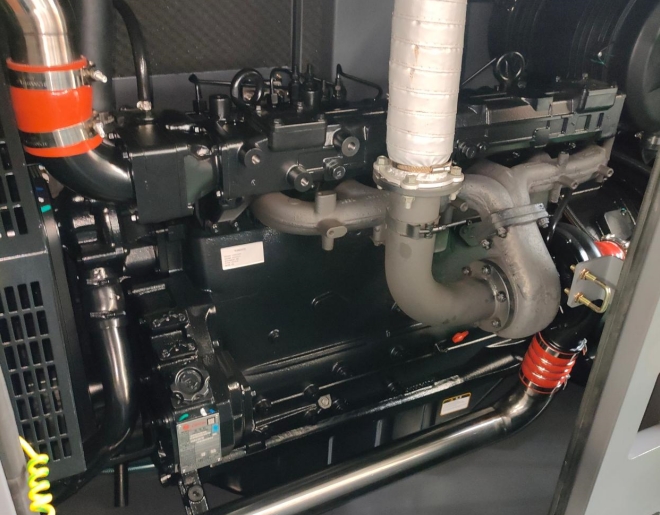-
Tél : +86-591-86397381
-
E-mail : sale@hosempower.com
-
Skype : +86-13205904365
Tél : +86-591-86397381
E-mail : sale@hosempower.com
Skype : +86-13205904365

When managing diesel generators, understanding the factors influence that diesel generator fuel consumption can significantly impact operational costs and efficiency. Factors such as load, engine condition, and environmental conditions play essential roles in the amount of fuel a diesel generator consumes. This article outlines these factors in detail and provides actionable solutions for reducing fuel consumption in diesel generators.
Load Size: Diesel generators operate most efficiently when they are near full load, as the engine’s design works best close to its rated capacity. At lower loads, the generator uses more fuel to maintain auxiliary systems, even though the generated electrical output is less. For instance, a 1000 kW generator operates more efficiently at a 1000 kW load than at a 200 kW load, as low-load operations lead to higher fuel consumption due to fixed engine frictional losses.
Relevant Article: How to Choose Generator Set Size?
Solution: Aim to run the generator at optimal loads when possible. Using a generator sized for the application load will prevent fuel wastage.
Engine Technical Condition: Over time, engine components such as pistons, cylinder walls, injectors, and valves wear down, which can significantly reduce fuel efficiency.
Piston and Cylinder Wall Wear: Reduces compression and leads to incomplete combustion, wasting fuel.
Injector Condition: A clogged or malfunctioning injector causes poor fuel atomization, leading to incomplete combustion and carbon buildup.
Valve Sealing: Improper sealing can disrupt the air-fuel mixture, further increasing fuel consumption.
Solution: Regular maintenance, including timely servicing of injectors, replacing worn-out pistons, and ensuring valve integrity, is essential for optimal combustion efficiency and fuel savings.
Engine Power and Displacement: Higher-powered and large-displacement engines consume more fuel due to increased combustion chamber volume and additional friction from heavy mechanical parts.
Solution: Select an engine size that aligns with the load requirements. Using a large engine for a small load will lead to inefficiencies. Opt for fuel-efficient engines if higher power is necessary.
Low Temperatures: Thickens diesel, worsening fuel atomization and increasing internal resistance due to thickened oil. As a result, more fuel is consumed for initial startup and operation.
High Temperatures: Require the cooling system to work harder, increasing fuel consumption. High temperatures may also reduce air density, affecting combustion efficiency.
Solution: In cold environments, use pre-heating devices to reduce startup fuel use. For hot environments, ensure the cooling system is well-maintained and possibly install additional fans or radiators to reduce load on the generator.
Altitude: Higher altitudes mean lower air density, which results in incomplete combustion. To compensate, the generator injects more fuel, thus increasing consumption.
Solution: In high-altitude locations, consider installing turbochargers or air intake systems designed to enhance oxygen availability. Fuel calibration adjustments can also help.
Air Humidity: High humidity reduces air density slightly, causing a marginal increase in fuel use, though its effect is less significant compared to other factors.
Solution: Consider dehumidifiers in high-humidity areas, particularly if large fluctuations in humidity are common.
